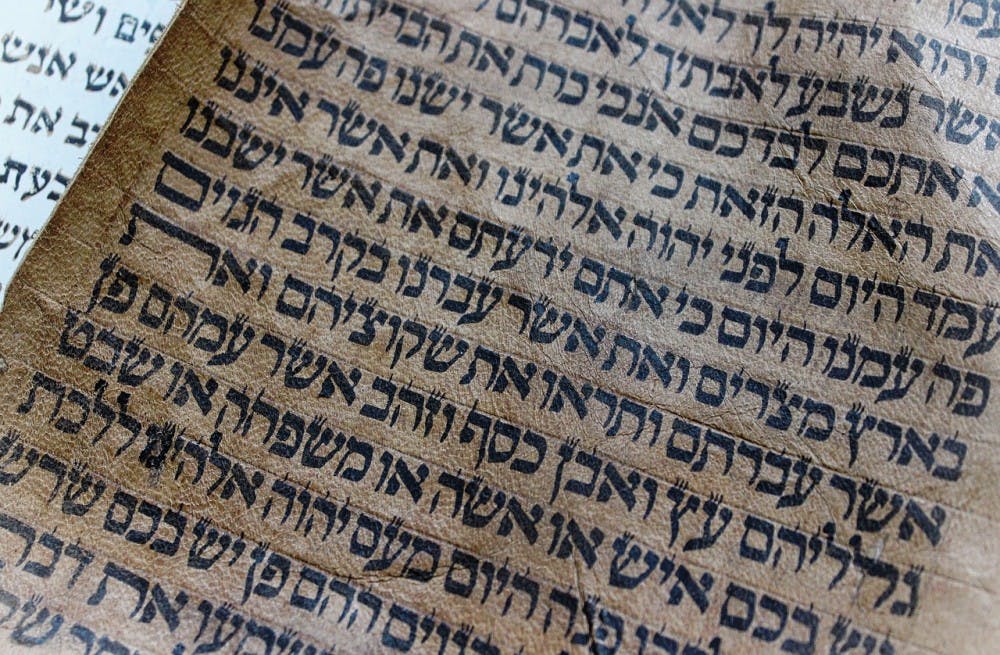On Monday, Sept. 23, Robert Alter, an Emeritus Professor of Hebrew and Comparative Literature at the University of California, Berkeley, discussed his recently published and widely lauded translation of the Hebrew Bible, as well as his new book, “The Art of Bible Translation,” at a talk co-hosted by the Religion and Judaic Studies departments. Alter addressed a packed room, as attendees stood in the entryway and sat in the aisles.
Leora Batnitzky, the Ronald O. Perelman Professor of Jewish Studies, Esther Schor, the Leonard L. Milberg ’53 Professor of American Jewish Studies and Professor of English, and David Bellos, the Meredith Howland Pyne Professor of French and Comparative Literature, responded to Alter’s presentation. Humanities Council chair and Professor of Religion Eric Gregory moderated the conversation, as well as questions from the audience.
To begin the lecture, Alter posed the question of why he determined that the Bible, which has been translated into English many times, would benefit from another translation. Alter asserted, “the short answer is that none of the existing translations, with the only partial exception of the King James Version, do a great deal of justice to the literary shaping of the [Biblical] Hebrew.”
Alter continued along this theme, bringing examples of how his translation pays careful attention to non-lexical aspects of the Biblical text, such as alliteration. In a particular example, Alter noted how in Psalm 30, Verse 11, the author employs alliteration in the Hebrew text to highlight extreme emotional transformation, from mourning to joy. Alter chose the word “dirge” to represent mourning, so as to maintain alliteration with the joyous “dance,” which he employed in the same verse.
Alter also discussed how and why his translations of the Hebrew Bible, which were published incrementally over the past two decades, seek to present the Bible without the theological overtures introduced by many previous translators. To that end, Alter said he ultimately chose to remove “Christological references” that other translators have incorrectly incorporated into the Hebrew Bible.
Alter highlighted an example from Psalm 23, in which many English translations employ the verb “anoint,” a choice that implicitly situates the passage within Christian theology. Alter instead translates the verb as “moisten,” evoking imagery of the Ancient Greeks, who would spread oil on themselves, symbolizing “the good life” of luxury. In this case, by changing one verb, Alter sought “[to] shift the emphasis from upward in the sky down to the concrete.”
The respondents’ reflections on Alter’s presentation were largely positive, with Batnitzky noting how readers should see Alter in the context of great Jewish-American writers.
In addition, Schor explained that she has used Alter’s Bible translations for teaching students since his first translation, of the Book of Genesis, was published in 1996. When only his Genesis translation was available, Schor “used to feel the wind go out the sails” as her class moved on to the work of another translator.
Claire Lessler ’22, who attended the lecture, was particularly interested because she “had always analyzed the Bible from a traditional Orthodox Jewish perspective … and thought it was interesting that [Alter] chooses to read the Bible as a literary work you can criticize.”
The talk took place at 4:30 p.m. in McCormick 101 and was open to the public.









